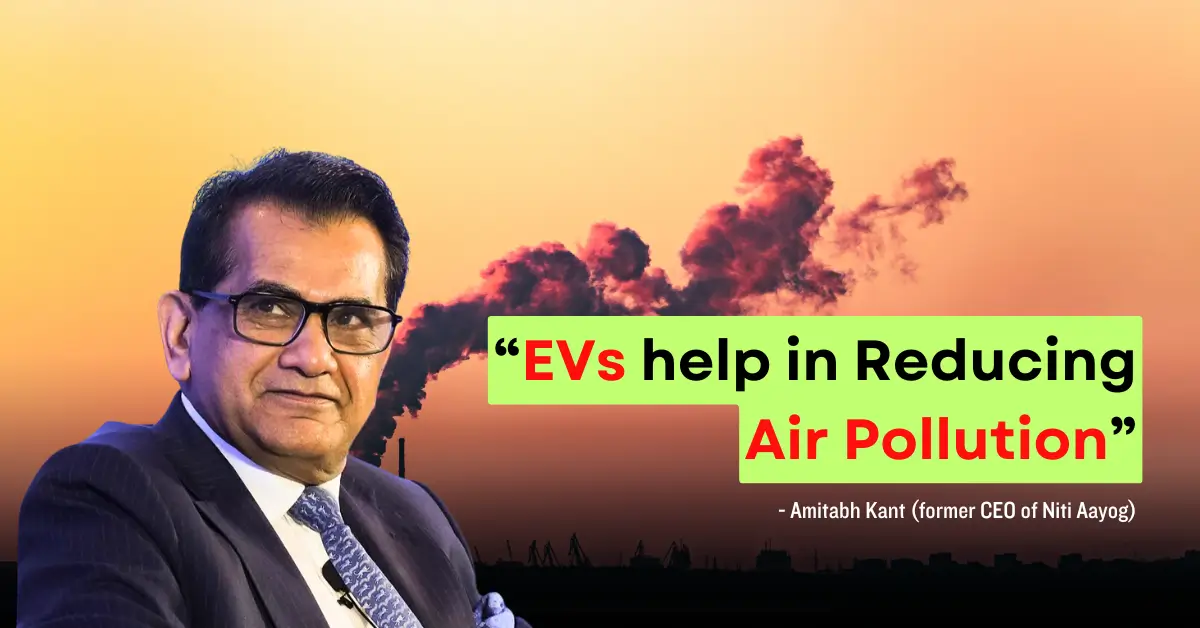
“India has the potential to overcome its air quality crisis with electric vehicles (EVs), but it requires robust policy implementation, widespread adoption of zero-emission vehicles (ZEVs), and significant investment in infrastructure.
Despite current challenges, such as low EV penetration at just 2% of the market, India has made considerable efforts through initiatives like FAME, PLI, PM eBus Sewa, and the Electric Mobility Promotion Scheme (EMPS).
State-level incentives and commitments from leading automakers like Tata and Mahindra also indicate a promising shift.
By replicating global successes—such as China’s dominance in EV sales or Europe’s and the U.S.’s higher market shares—India can address vehicular pollution and improve its air quality while remaining competitive in the global automotive industry.
India’s air quality has deteriorated significantly, with Delhi experiencing its worst levels in eight years and the country hosting 42 of the world’s 50 most polluted cities.
Despite measures like promoting CNG vehicles and advancing emission norms, pollution from fossil fuel vehicles remains a major concern.
Accelerating the adoption of zero-emission vehicles (ZEVs) is seen as a viable solution.
Globally, EV market shares have increased significantly due to supportive government policies:
In contrast, India’s EV market share is currently at 2%.
However, with a robust policy framework, similar growth is attainable.
Indian companies like Tata and Mahindra are leading the transition, investing in new EV models and infrastructure.
The Government of India has invested over ₹75,000 crore in initiatives such as FAME (Faster Adoption & Manufacturing of EVs), Production Linked Incentives (PLI), PM eBus Sewa, and the Electric Mobility Promotion Scheme (EMPS) to support EV adoption. State governments have also contributed through policies and tax incentives.
By embracing ZEVs, India can address its air pollution challenges and remain competitive in the evolving global automotive market.” He wrote in the article.
This post was last modified on December 26, 2024 11:53 am
The festive season in India is always considered the right time for new purchases — whether it’s gold, gadgets, or…
Mercedes-Benz has officially unveiled the GLC Electric at the IAA Mobility show, a move that electrifies its best-selling SUV while…
Noise, in collaboration with TVS Motor Company, has launched India’s first smartwatch that directly integrates with an electric scooter. The…
In a milestone for India’s electric vehicle (EV) industry, Bengaluru-based Simple Energy has announced the successful commercial production of the…
This article is the latest update on 16 Sep. Most EV conversations focus on speed, range, charging, or flashy product…
Siddharth Jain, Inox Group MD, has taken delivery of India’s first Tesla Model Y. From visiting Tesla’s Fremont factory in…
This website uses cookies.